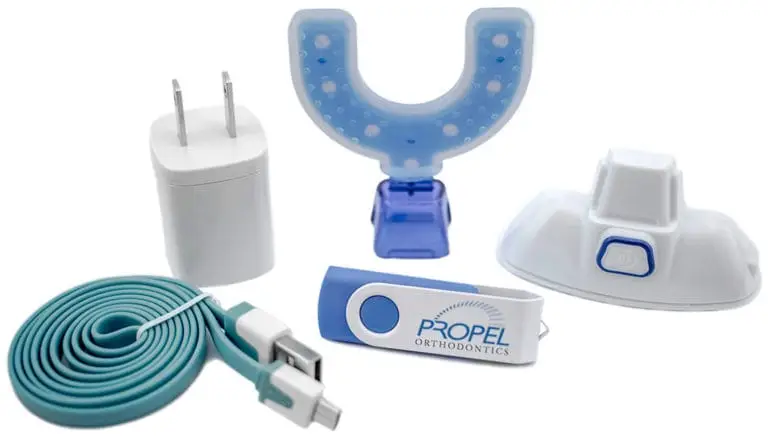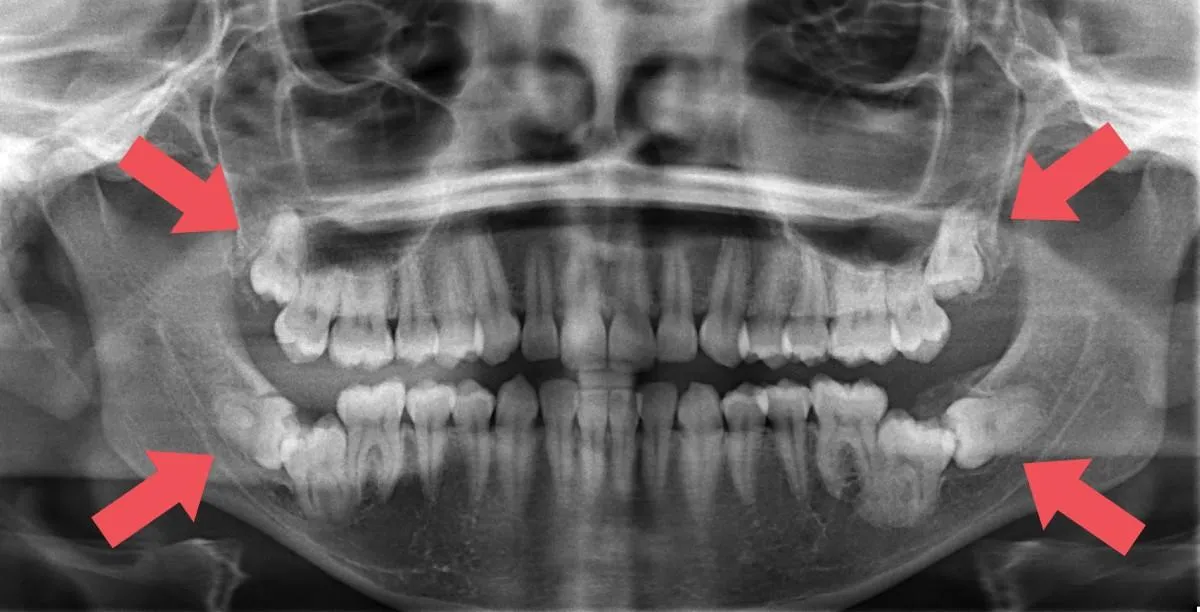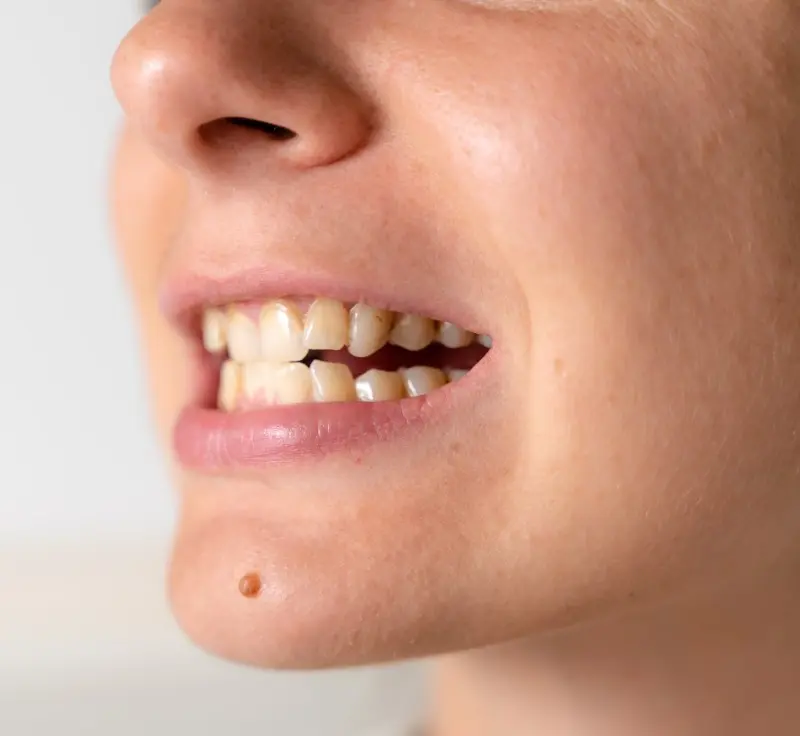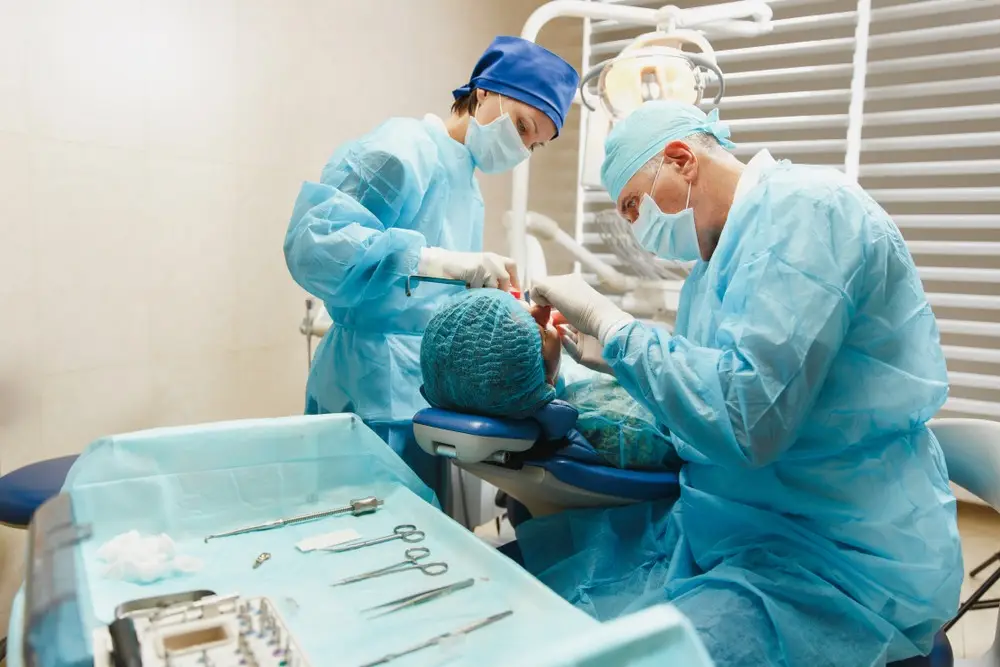
Accelerated Invisalign – Propel’s VPro5
Diamond Braces is happy to offer its patients VPro5 by Propel Invisalign, the latest tool that helps to straighten your teeth quicker.
Patients often qualify for removable clear aligners. This is true even if they have veneers, bridges, crowns, or other dental restorations.
In some situations, patients with missing teeth can also use clear aligners. An orthodontist can use tooth-colored pontic wax to fill the gaps where a tooth is missing.
Curious about the impact of wisdom teeth on braces and Invisalign treatment? Wondering if they influence candidacy, or if it's a case-by-case matter? Explore the ideal timing for wisdom teeth removal with aligners as you continue reading.

Wisdom teeth, often the most impacted molars, face challenges in erupting due to limited space in the mouth. They typically begin growing after the age of 7 and do not have a well-defined purpose for modern humans. Developing a treatment plan for these teeth is essential for maintaining good oral health.
Wisdom teeth typically emerge between ages 17 to 21, which may align with someone considering removable clear aligner treatment. Luckily, painless and asymptomatic wisdom teeth usually won't disrupt clear aligner treatment progress. Your orthodontist can conduct an x-ray examination before fitting your clear aligners to assess any potential issues with wisdom teeth that could affect your treatment. Don't forget to regularly brush your teeth to maintain their health and prevent any unwanted shifts in your teeth.
During clear aligner treatment, if wisdom teeth are extracted by an oral surgeon, it usually won't impede progress. Your orthodontist can adjust the aligner to make space for the extracted tooth or surgical site, ensuring your treatment continues smoothly.

Research shows that most people, about 85%, will need to remove their wisdom teeth at some point. If you ??re not in the small 15% group, you ??ll likely need this procedure.
Doctors may suggest removing wisdom teeth for several reasons. These include teeth pushing on others nearby. It can also be due to gum problems and infections. Tooth decay or loss is another reason.
Some people experience jaw pain and numbness. Others may have cysts or tumors. Difficulty with biting and eating can also be a sign.
Other symptoms include severe headaches and earaches. Bad breath that won ??t go away can be a sign of decay and disease.
Wisdom teeth problems vary from person to person, which can impact both clear aligners and overall oral health. Your dentist or orthodontist may recommend removing wisdom teeth as a precautionary measure to avoid potential issues.
It's wise to take preventive action since extractions could become necessary later on. Maintain your oral health by brushing and flossing regularly to reduce the risk of tooth movement due to wisdom teeth. In just 22 hours, you can make a positive impact on your oral health, even while moving your teeth with braces and wires.
Extraction can happen at any treatment stage, based on the diagnosis. You may want to speed up the process and remove them sooner rather than later.

You might think that wisdom teeth can affect your orthodontic treatment results. This is not necessarily true.
Wisdom teeth often have less room to erupt compared to other teeth. This could lead to crowding , spacing, and shifting issues. However, this is not always the case.
People may feel that their alignment has changed after wisdom teeth removal. They might notice this especially if they are wearing any type of braces. These include traditional metal braces, ceramic braces, and lingual braces.
But remember, this is just a perception. It ??s not a proven fact. So, don ??t worry too much about your wisdom teeth affecting your orthodontic treatment results.
Braces with brackets and wires can influence your bite alignment. After extraction, you might feel a change. But, extraction doesn ??t drastically change the alignment of your teeth. Even if you leave them in, it ??s the same.
You might consider removing them due to indirect complications. These could be related to orthodontic treatment, like pain or gum disease. However, there ??s not much solid proof that wisdom teeth directly affect bite alignment.
When the pressure is gone, you might feel more space in your bite. But, wearing your retainer regularly has a bigger effect. It helps prevent your teeth from shifting back after treatment. This is more effective than removing wisdom teeth.

The cost of wisdom teeth removal can range from a few hundred to just over $1000. This cost depends on several factors. These include the complexity of the case, the number of teeth that need removal, the type of anesthesia used, the cost of exams and x-rays, the location of the provider, and the extent of tooth eruption.
If you have dental insurance, it often covers some costs of oral surgery. This includes the removal of wisdom teeth.
This means you don ??t have to pay the full price for these procedures. The insurance plans takes care of a portion of it. This can make dental care more affordable for many people.
This coverage applies if the procedures are medically necessary. It ??s always a good idea to check with your insurance provider. You want to make sure your provider offers dental coverage for wisdom tooth extraction.
Even without dental insurance, you have other options to cover some of the cost. These options can also cover the cost of braces work.
Wisdom tooth extraction and orthodontic treatments like wearing braces with stainless steel brackets and wires are eligible expenses. Regular flexible spending accounts (FSAs), restricted care FSAs, and health savings accounts (HSAs) offer insurance coverage. Your orthodontic provider may also offer a flexible, affordable low monthly payment plan.
You can check this by talking to an orthodontist. Make sure they are trusted and have a license.
During your initial consultation for clear aligner treatment, you shouldn ??t be afraid to ask whether or not the presence of your wisdom teeth, and the need for any associated office visits, would cause problems. At that point, your orthodontist can determine if the removal of wisdom teeth is a required process.